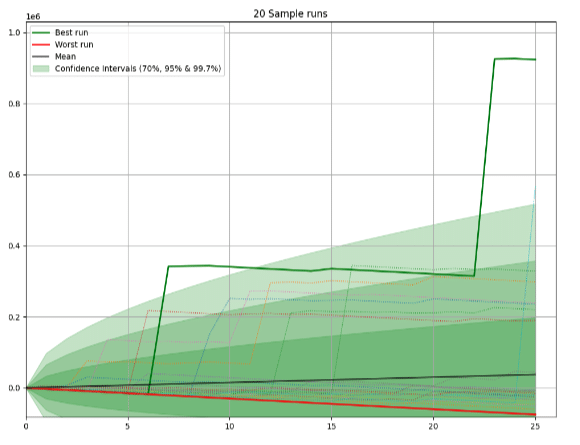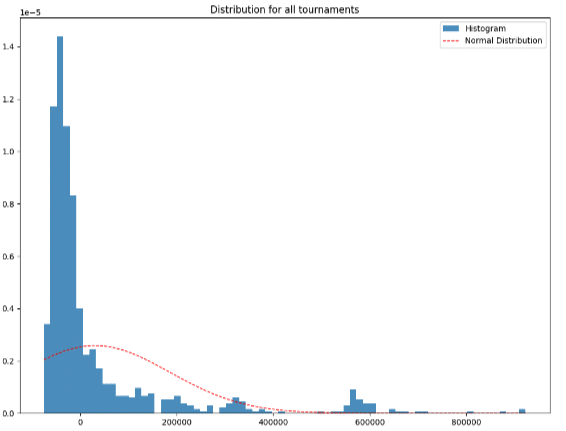In the gambling world, the wager on Tice versus Becker is capturing everyone’s attention. Yet with only 25 guaranteed events between them, questions arise about what this bet truly signifies. The concept of short-term variance in live poker becomes a pivotal point of discussion in understanding the dynamics of this rivalry. The showdown between the GTO (Game Theory Optimal) student and the intuitive player at this year’s World Series of Poker has sparked significant interest and become a widely discussed topic, highlighting the unpredictability and excitement inherent in the game of poker.
This buzz led to a humorous tweet from an observer, who then delved into the actual odds of the scenario. The agreement to crossbook in at least 25 tournaments during the summer series has highlighted the fact that, despite both players having a positive expected value (+EV) in the field, a sample size of 25 is considered too small to be meaningful.
To analyze the odds further, the observer used PrimeDope, a favorite online tool, to calculate the likelihood of either player achieving substantial winnings. With an average buy-in of $3,000 and tournaments featuring 1,000 participants, both players were assigned a 50% Return on Investment (ROI). While the ROI figure is open to debate, a generous estimate was chosen to illustrate a point.
Out of 1,000 simulations, here are 20 random outcomes:

Here’s the distribution across all tournaments, from over 1,000 samples:

Most often, the challenge results in a loss.
After running 1,000 simulations to examine the short-term variance in live poker, the outcomes revealed a predominant trend of losses. The probability of incurring losses after participating in 25 tournaments reached 69.4%, indicating that losses were the most common result, often including losses in every event played.
These simulations, although not perfect due to potentially inaccurate ROIs and variable field sizes, underscore the challenge of making judgments based on a single series of events. It becomes clear that, regardless of a player’s skill level, the most likely outcome over such a small sample size is that both will lose money in the tournaments they play.
Despite the inherent uncertainties, good luck is extended to Jeremy Becker, signifying continued support amidst the unpredictable nature of poker betting.











